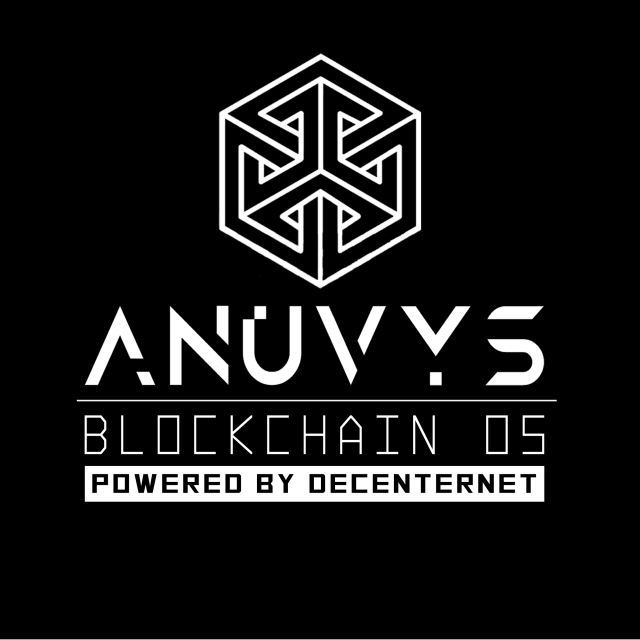The Internet has been around a lot longer than many people realize. It started as a Department of Defense tool and was remade as a commercial network in the late 1980s. With the advent of the World Wide Web in 1990, it transitioned into one of the most powerful communications and publishing tools the world has ever known. Well, brace yourself because it's about to get better.
Meet Decenternet: The Next Phase of the Internet
Imagine the Internet as it was intended to be, a network of computer networks where no one entity controls the flow of information. If you can picture that, then you have a glimpse into the future because that is what Decenternet promises with its decentralized Internet.
Today, I want to share with you 11 things you absolutely need to know about Decenternet. Here goes:
1. Decenternet will turn the Internet into a decentralized network of computer nodes as it was intended to be - Initially, the Internet was conceived as a peer-to-peer network that no one could control. Over time, commercial interests began to seize control over little parts of it here and there. Internet Service Providers are now able to throttle transmissions to allow some content to speed through while other content is delayed or halted altogether. Google practically owns the search engine market and users are not guaranteed to see the results they want but are more likely to see results that someone paid to be seen. Facebook algorithms do something similar on the world's most popular social media website. And popular YouTubers are starting to look elsewhere to keep their shows alive. If the Internet were decentralized, this could not happen.
There are a lot of technicalities involved in how that can work, and Decenternet doesn't share the details, but the exciting part is in the promise. If they can pull it off, it will truly make the Internet great again.
3. Anuvys will end Internet spying - At the heart of Decenternet's grand plan to put the Internet back in users' control is its operating system Anuvys.

Taken from company materials
On the surface, Anuvys looks like a really cool operating system. Based on Linux, it allows users to mine a cryptocurrency called Spyce essentially paying users instead of taking their money. Anuvys also includes a decentralized crypto exchange and a secure crypto wallet (could it be that users will only need one wallet for all crypto?) as well as an ability for users to create their own apps on top of it. Already, there are several of these planned by the Decenternet founders (including the Liberty search engine, the Osiris web browser, Hermes the messenger app, and Apollo the tokenization platform). One thing that does concern me about Anuvys is its slow-loading website. That doesn't exactly instill confidence in me, but if Anuvys can keep half of its promises, including putting the end to browser-based spying, then it will certainly be a step in the right direction.
4. Decenternet will save net neutrality - I wrote about this in more detail in a previous post titled "5 Ways a Decenteralized Internet Will Fix Net Neutrality." Long story short, with a decentralized Internet, large companies like Verizon and AT&T can't claim ownership of the infrastructure and impose restrictions on content they don't like.
5. It has been endorsed by the ARPANET - The previously mentioned post on net neutrality and the decentralization of the Internet goes into some detail on what the ARPANET is and how it is the precursor to the modern Internet. The ARPANET is a very important organization in the development of the Internet as we know it, and they have endorsed Decenternet.
6. A decentralized Internet upholds the value of Satoshi Nakamoto, inventor of Bitcoin - There is a reason nobody know who Satoshi Nakamoto is, or was. Anonymity is an important value of a decentralized Internet. Satoshi Nakamoto did not want anyone knowing his identity, and because of his creation - the blockchain underlying Bitcoin - he was able to protect it and maintain it. Other values Satoshi Nakamoto wanted to secure with the blockchain and Bitcoin include decentralization and peer-to-peer interactions. Decenternet has all of that.
7. Decenternet uses end-to-end encryption - End-to-end encryption is simply the ability to secure communications so that only the sender and the receiver can read them. Because email relies on the communications passing through multiple servers before reaching their end points, they are not technically secure. A truly secure form of communication would result in a direct path between the sender and the receiver and encrypt the message so that no one could intercept it and make out its contents. Decenternet utilizes end-to-end encryption to maintain security in peer-to-peer communications.
8. It also upholds the cyperpunk and open source ethos - My previous blog post titled "Cyberpunk Ethos: Is a Decentralized Internet Possible?" goes into great detail about the cyberpunk ethos and how Decenternet upholds that ethos as well as the related cypherpunk ethos. The open source ethos is another value Decenternet upholds, and which has farther reaching and more profound implications for the human race. For starters, it ensures transparency, something the Philip DeFranco video embedded above indicates is lacking on YouTube. It's also lacking with other Internet giants such as Facebook and Google, both of which refuse to share their algorithms with the public. There may be good reasons for not doing so, but an open source ethos ensures there is radical transparency on the Internet, and Decenternet wants to uphold that value.
9. DNet has a strong leadership team - Backed by years of experience in blockchain development, IT, fintech, and marketing, the Decenternet team is diverse, educated, and skilled.
10. It has its own cryptocurrency - While I wish company materials had more information about Spyce, it is interesting to note that Decenternet has its own cryptocurrency. If this project gains worldwide acceptance, Spyce should become a regular part of everyone's life as people are able to transact peer-to-peer on a global scale. Spyce is not likely to replace Bitcoin as the headmaster of all cryptocurrencies, and it likely will not replace all altcoins, but as the chief cryptocurrency for Decenternet, it could prove to be a valuable component of decentralized commerce and a decentralized economy within a decade. Of course, a lot of that depends on the implementation of Decenternet, and its reception.
11. Planned release is 2020 - It's still two years away, and a lot can happen in that two years. The fact that someone is ready to start implementing a decentralized Internet right now is a huge boon to the global crypto economy. There is the possibility that a cataclysmic event, or several events in cyberspace, could lead to a dot-com bust event, and if that happens, a decentralized Internet is still probably years away. But if all goes well, and Decenternet makes good on its promises, this is certainly something to look forward to.
If you'd like to learn more about Decenternet and its plans to decentralize the Internet, check out the following links.
- Check out Decenternet’s website
- Check out ANUVYS
- Follow the Decenternet Facebook page
- Follow Decenternet on Twitter
- Join the Decenternet Telegram group


Review Me, Please
My other Decenternet posts:
- 5 Ways a Decentralized Internet Will Fix Net Neutrality
- Cyberpunk Ethos: Is a Decentralized Internet Possible?
- Decenternet Wants to Make Centralization a Dirty Word
- Peace on Earth, Good Will Toward Bitcoin: Bridges, High Rises, and Token Conversions
- 21 Ways to Use the Steem Blockchain for Business
- Poetry Sunday: Love and War
- Flash Fiction: How to Save a Life
- 5 Ways a Decentralized Internet Will Fix Net Neutrality


Animation By @zord189

created and used by veterans
with permission from @guiltyparties


Posted from my blog with SteemPress : http://tayloredcontent.com/decenternet-11-things-you-must-know-about-the-next-phase-of-the-internet/
